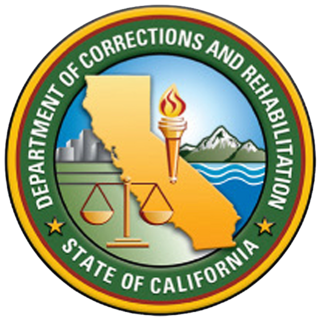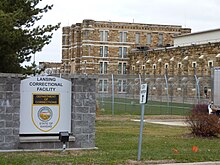Prison Fellowship is the world's largest Christian nonprofit organization for prisoners, former prisoners, and their families, and a leading advocate for justice reform.

Charles Wendell Colson, generally referred to as Chuck Colson, was an American attorney and political advisor who served as Special Counsel to President Richard Nixon from 1969 to 1970. Once known as President Nixon's "hatchet man", Colson gained notoriety at the height of the Watergate scandal, for being named as one of the Watergate Seven, and also for pleading guilty to obstruction of justice for attempting to defame Pentagon Papers defendant Daniel Ellsberg. In 1974, he served seven months in the federal Maxwell Prison in Alabama, as the first member of the Nixon administration to be incarcerated for Watergate-related charges.

Recidivism is the act of a person repeating an undesirable behavior after they have experienced negative consequences of that behavior. It is also used to refer to the percentage of former prisoners who are rearrested for a similar offense.

Prison education is any educational activity that occurs inside prison. Courses can include basic literacy programs, secondary school equivalency programs, vocational education, and tertiary education. Other activities such as rehabilitation programs, physical education, and arts and crafts programs may also be considered a form of prison education. Programs are typically provided, managed, and funded by the prison system, though inmates may be required to pay for distance education programs. The history of and current practices in prison education vary greatly among countries.
The Newton Correctional Facility is a low and medium security correctional institution of the Iowa Department of Corrections. It is located in Palo Alto Township, in unincorporated Jasper County, Iowa, near Newton. Currently the institution has 265 staff members and about 1,300 inmates.

The Penal system of Japan is part of the criminal justice system of Japan. It is intended to resocialize, reform, rehabilitate and punish offenders. The penal system is operated by the Correction Bureau of the Ministry of Justice.
Barry W. Lynn was the executive director of Americans United for Separation of Church and State from 1992 to November 2017, when he retired. He was ordained as a minister in the United Church of Christ and a prominent leader of the religious left in the United States. Lynn was formerly a member of the District of Columbia Bar Association. He has been known as a strong advocate of separation of church and state.
The Women's Eastern Reception, Diagnostic and Correctional Center (WERDCC) is a prison in Vandalia, Missouri, in the United States. It is a part of the Missouri Department of Corrections.
Prison Fellowship International (PFI) is a Christian international non-governmental organization of national prison fellowship organizations from 112 countries. The organization is based in Washington D.C., United States, and its current president is Andy Corley.
A prison nursery is a section of a prison that houses incarcerated mothers and their very young children. Prison nurseries are not common in correctional facilities in the United States, although prior to the 1950s many states had them and they are widespread throughout the rest of the world.

Lansing Correctional Facility (LCF) is a state prison operated by the Kansas Department of Corrections. LCF is located in Lansing, Kansas, in Leavenworth County. LCF, along with the Federal Bureau of Prison's United States Penitentiary, Leavenworth, the United States Army Corrections Command's United States Disciplinary Barracks, and Midwest Joint Regional Correctional Facility in Fort Leavenworth are the four major prisons that give the Leavenworth area its reputation as a corrections center.

The Texas Department of Criminal Justice (TDCJ) is a department of the government of the U.S. state of Texas. The TDCJ is responsible for statewide criminal justice for adult offenders, including managing offenders in state prisons, state jails, and private correctional facilities, funding and certain oversight of community supervision, and supervision of offenders released from prison on parole or mandatory supervision. The TDCJ operates the largest prison system in the United States.

California Rehabilitation Center (CRC) is a state prison located in Norco, Riverside County, California. The prison is sometimes referenced as "Norco" or "Norco Prison".
Prison contemplative programs are classes or practices that are offered at correctional institutions for inmates and prison staff. There are measured or anecdotally reported benefits from studies of these programs such a stress relief for inmates and staff. These programs are gaining in acceptance in North America and Europe but are not mainstream.
The Minnesota Correctional Facility – Lino Lakes (MCF-LL) is a state prison located in Lino Lakes, Minnesota, USA.
Conversion to Islam in U.S. prisons refers to the contemporary high rate of conversion to Islam in American prisons, for which there are a number of factors. It is the fastest growing religion in U.S. prisons, where the population is 18 percent Muslim ; 80 percent of all prison religious conversions are to Islam.

W. J. "Jim" Estelle Unit also known as the Estelle Supermax Penitentiary, is a prison located on Farm to Market Road 3478 in unincorporated Walker County, Texas, United States, 10 miles (16 km) north of central Huntsville. The prison, with about 5,459 acres (2,209 ha) of space, is operated by the Texas Department of Criminal Justice. The unit, which opened in June 1984, was named after Ward James "Jim" Estelle, a former prison director of Texas.

Carol S. Vance Unit is a Texas Department of Criminal Justice (TDCJ) prison located in unincorporated central Fort Bend County, Texas. The unit, located in flatlands, is along U.S. Highway 90A, 4 miles (6.4 km) east of central Richmond. The facility is in proximity to Sugar Land, and it is about 20 miles (32 km) southwest of Downtown Houston. The unit, with about 940 acres (380 ha) of land, is co-located with Jester I Unit, Jester III Unit, and Jester IV Unit. The unit consists of four steel buildings and two brick buildings. The prison is the home of the Prison Fellowship Academy Christian prison program. It is located on the Jester State Prison Farm property.
Right on Crime is a conservative U.S. criminal justice reform initiative that aims to gain support for criminal justice reform by sharing research and policy ideas, mobilizing leaders, and by raising public awareness. Right On Crime reforms are focused on "reducing crime, lowering costs and restoring victims." The initiative primarily focuses on eight issues: over-criminalization, juvenile justice, substance abuse, adult probation, parole and re-entry, law enforcement, prisons and victims. Right on Crime is a project of the Texas Public Policy Foundation, a conservative think tank. After its founding in Texas, Right on Crime has contributed to many criminal justice reforms throughout the country, working with conservative and liberal organizations.
Prisoner reentry is the process by which prisoners who have been released return to the community. Many types of programs have been implemented with the goal of reducing recidivism and have been found to be effective for this purpose. Consideration for the conditions of the communities formerly incarcerated individuals are re-entering, which are often disadvantaged, is a fundamental part of successful re-entry.










